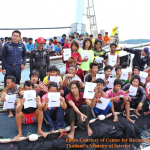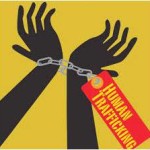
Recent legislation signed by United States President Barack Obama barring the import of products made by forced labor or human trafficking victims is good for Thailand as most Thai companies are free of such abuses in their manufacturing and supply chains, a spokesman for the Ministry of Foreign Affairs said last week.
Furthermore, the relatively few companies still mistreating workers are being targeted for increased scrutiny and pressure to change. That was demonstrated last week when government officials oversaw negotiations between striking migrant workers from Myanmar and a Thai tuna-canning company. The company agreed to pay $1.3 million in compensation to over 1,100 migrant workers for a variety of labor abuses. The case is evidence of the improving situation of labor rights and migrant workers’ rights in the Kingdom.
Responding to questions about the new U.S. law, Foreign Ministry Spokesman Sek Wannamethee said that Thai companies would benefit from closer scrutiny because inspections will show that the vast majority of goods are produced in accordance with internationally accepted good labor practices and help dispel negative impressions or beliefs among U.S. consumers.
“Imported goods from Thailand will be more desirable for the U.S. market. It will help create a good image for Thai goods,” Sek said. “We hope that the US government will implement the law with transparency and not as a trade barrier.”
Two weeks ago, President Obama signed the Trade Facilitation and Trade Enforcement Act that requires goods imported by the U.S. to be free from illegal labor. Some newspapers wrote that the law is aimed at Thailand and its fishing and seafood industries, which have been the focus of media attention and calls for boycotts of Thai products by labor rights groups. The law, however, applies to all countries and President Obama did not single out any nation in speaking of the legislation, as Thailand is far from the only one afflicted with this problem.
The International Labor Organization (ILO) reports that 21 million people worldwide are victims of forced labor and the practice generates $150 billion in illegal profits per year. Modern-day slavery is a global phenomenon with more than 11.7 million victims in Asia, 3.7 million in Africa, 1.8 million in Central and South America, 1.6 million in Eastern Europe and Russia and 1.5 million in North America and Western Europe. The Middle East has 600,000 people laboring under force.
The number of victims per thousand people, however, is highest in Eastern Europe and Africa, according to the ILO.
Thailand partners with the ILO, other international agencies and civil society groups to eliminate abuses and create more effective policies and measures to improve labor standards and conditions.
Prime Minister Prayut Chan-o-cha has declared the fight against human trafficking and labor abuse a national priority, Since late 2014, the government has been implementing a comprehensive campaign of measures to eliminate these problems, including sweeping reforms and tougher enforcement in the fishing and seafood sectors.
The private sector has also been playing a positive role. Following revelations of worker abuse by some third-party suppliers, most major seafood processing companies have moved all operations in house so they can guarantee their supply chains have no trafficked workers or labor abuse.
One seafood processing firm, Golden Prize Tuna Canning in Samut Sakhon province just outside Bangkok, agreed last week to pay over 1,100 migrant workers from Myanmar a total of $1.3 million in compensation for labor abuse and exploitation.
The 2,000 workers at Golden Prize, mostly migrants from Myanmar, had gone on strike to protest conditions and treatment by the company. Government officials and the military helped facilitate and oversee negotiations between the two sides.
“To get a dispute like this that involves so much money and actually have it settled is very unprecedented,” said Andy Hall, a British labor rights activist who monitors the situation in Thailand.




